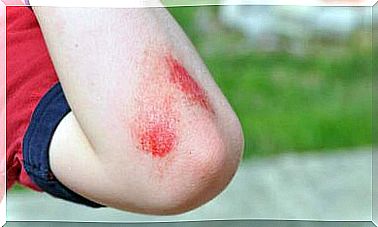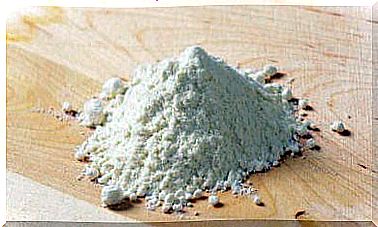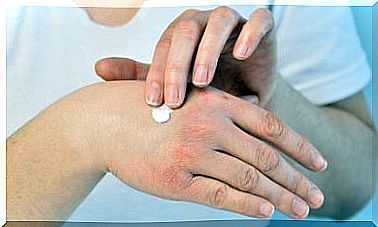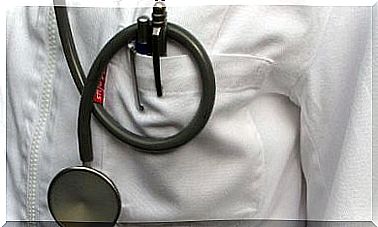Does Your Nose Bleed Often? Find Out Why It Can Be!
When bleeding arises from the front of the nasal septum, it is usually mild and of little severity. When we feel the nosebleed, we must cover our nose, pressing with our fingers, and tilt our head forward.
If your nose bleeds often, you should know that there are several reasons for it. For example, it can be related to nasal dryness, but it can also be a symptom of rhinitis, or an indicator of other health problems, such as hypertension.
Spontaneous epistaxis or bleeding through the nostrils should not be overlooked. Below we will discuss some of the most common causes of this type of bleeding.
Why does our nose bleed?
Since the nostrils are an area of the body rich in vascularization, when one of the blood vessels that supply the mucosa of the nose breaks, the blood descends towards the nostrils and that is when we notice that our nose bleeds. In general, the blood usually descends through one of the two nostrils, although it can sometimes go down both.
When the bleeding comes from the front of the nasal septum, it is usually not serious and is short-lived. Also, bleeding is scanty. It is usually caused by having touched the area excessively, environmental dryness or by allergic rhinitis.
On the other hand, uncontrolled high blood pressure can also cause the nose to bleed. It is a defense mechanism of the body against the high blood pressure that it suffers. When bleeding, the pressure is slightly reduced, thereby seeking relief.
In any case, if your nose bleeds often it is necessary to mention it to the doctor so that he can make an evaluation and determine what may be the cause of our bleeding with precision.

Lack of vitamin C
One of the most common causes of nosebleeds is a lack of vitamin C in the body. This vitamin helps to strengthen the nasal capillaries and, being in insufficient quantities, it can cause bleeding.
Vitamin C can be obtained through various foods, such as: citrus fruits, especially lemon with its peel, red fruits, broccoli, parsley, pepper, rose hip, guava or kiwi, among others.
Of course, vitamin C can also be obtained from supplements. It is advisable to take a break after completing the capsules, pills, powdered sachets, etc., for at least one month, before resuming taking. In this way, the body will correctly assimilate the nutrient and benefit from it.

Other causes: more serious pathologies
- Liver disease.
- Benign or malignant tumor.
- Leukemia.
What should you do if your nose bleeds?
At the same time that we feel the nosebleed, the first thing to do is cover the nose, applying light pressure with the fingers on the wings, and tilt the head forward.
It is important that we do not throw our heads back, as we have been told many times, or that we lie down, since both positions can cause us to swallow the blood and also prevent us from knowing if we have stopped bleeding. We will wait a few minutes and, in case the bleeding does not stop, we will go to an emergency medical center.
If the bleeding has stopped, in the following hours we will avoid making efforts and taking drugs with anticoagulant or antiplatelet effects, such as aspirin. We will also be careful not to blow our nose forcefully.

Schüssler salts, a good remedy
Schüssler salts are a natural remedy that provides minerals, in homeopathic doses, so it has no contraindications or side effects on the body.
According to this classification, there are a total of twelve salts, which correspond to minerals that are found in the body naturally and are ingested daily through food.
The salts not only provide the body with the minerals it needs, but also distribute them correctly so that they are in the right place at the right time. When taken individually, each has a specific function, and the following are recommended for epistaxis:
- Calcium phosphate ( Calcium Phosphoricum ).
- Potassium sulfate ( Kalium Sulphuricum ).
- Iron phosphate ( Ferrum Phosphoricum ).
We will put two tablets under the tongue three times a day, separated from food, drinks and strong or menthol flavors (gum, toothpaste, etc.). The first in the morning, the second in the afternoon and the third at night. We will continue this treatment for at least a month.
It should be noted that this is a type of complementary treatment. Professional help or pharmacological treatments should not be ruled out, especially if the cause of the bleeding is one of care.









